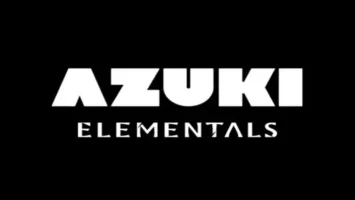SNEAK PEEK
- Azuki brand’s creators, Chiru Labs, hosted an auction that managed to draw $2.5 million in NFT-backed skateboards.
- The auction allowed people to place bids in Ethereum to secure ⅛ skateboards plated in 24 karat gold and weighing 45 pounds.
- A total of 145 bids were there on the skateboards, and the highest bidder paid over $400,000, while the lowest successful bid was $260,000.
In a recent announcement, it was revealed that ferocious bidding took place over a total of eight gold-plated skateboards. The auction was hosted by the creators of the Azuki brand, Chiru Labs, and it allowed people to place bids in Ethereum in order to secure one of eight skateboards.
The skateboard was secured for $2.5 million in ETH, and it should be noted that each of the skateboards has been plated in 24-karat gold and weighs 45 pounds. As per the recommendations from Chiru Labs, owners of the skateboards must not try to ride them.
Well, it goes without saying that though Non-Fungible Tokens (NFTs) are thought of as just images, this auction over physical skateboards, the authentication of which is backed by an embedded chip.
As per the revelations, the highest bidder in the auction paid over $400,000 for one of the eight skateboards, in comparison to the $260,000 for the lowest successful bid. There were a total of 145 bids on these skateboards. The embedded chip is responsible for confirming the uniqueness of the skateboards.
The results of the Azuki Golden Skateboard auction are in.
After 24H+ of fierce bidding (especially in the final moments), we have our top 8 Golden Skateboard auction winners. Let’s extend our warm & heartfelt congratulations to the winners!
Thread below 🧵 pic.twitter.com/SxAOjhVTVn
— Azuki (@AzukiOfficial) October 23, 2022
This chip can be scanned by any smartphone in order to authenticate the ownership, and this experience is called “scan-to-own.”
With questions like what will happen if any owner chooses to part ways with their blinged-out board, Chiku Labs answered that any other person could scan the embedded chip in order to carry out the transfer of the ownership to another wallet.
In addition to this, it should be noted that the boards represent the introduction of PBT, i.e., physically backed token, of Chiru Labs, which holds the responsibility to establish a link between a physical item and a digital token on the Ethereum blockchain.
A PBT can be considered a technology that can be utilized in order to keep track of the owners of the item throughout its history, and this can certainly be proven useful for establishing the provenance of a piece.
On October 17, Azuki introduced the PBT, an open-source token standard that utilizes the BEAN Chip, a cryptographic chip that produces an asymmetric key pair on its own.









